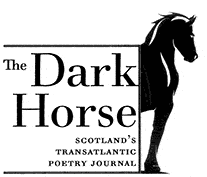 Spring & Summer 2018
Spring & Summer 2018
Ferril's Lost Songs
And when my song is lost, if someone says:
It ought to be restored,
let some one lift
One handful of this earth and say:It is!
T.H. Ferril, ‘Fort Vasquez’
In his heyday, Thomas Hornsby Ferril (1896-1988), lifelong Denverite and poet of the Colorado Rockies, was lauded not only in the West but on the Eastern Seaboard as well. Ferril received the Yale Series of Younger Poets Award for his debut collection High Passage, garnered other prestigious prizes, and landed poems in such journals as Poetry. Over the course of his lifetime he published five volumes of verse, as well as two books of essays. But in spite of these achievements, Ferril never transcended the status of regional writer. Though Colorado named him laureate in 1979, a post he held till his death, he’s now essentially forgotten even in his home state. This is a loss; his work elevates the clichés of the American West into something much richer and stranger.
As a young man Ferril had the opportunity to move to New York, and perhaps raise his profile, but he declined. His material sprang from his rootedness in Denver, his family’s pioneering history, his fervent familiarity with the Colorado mountains and their surrounding plateaus. Ferril’s interests lay in the great sweep of geological time, the ever-changing mineral landscape, and humanity’s interfacings with these elements.
The past is never quite lost for Ferril, and he insistently revives it throughout his second and most impressive volume, Westering (1934). In ‘Magenta,’ the narrator discovers a headless dressmaker’s dummy ‘On a pile of mining machinery over a graveyard.’ Enthroning her in an abandoned ore bucket, he instructs a distant mountain to ‘Become her lilac hair and face and neck. […]’ and then engages her in an uncanny dialogue in which she tells of the desolation of a miner’s wife:
A grave for a woman he brought across the plains
To die at noon when she was sewing a dress
To make a mirror say she was somebody else.”
An adept mandolinist who played by ear, Ferril imparts to his best poems something of this instrument’s warm-but-lonely sound. The Southern Rockies feature prominently, though never romanticized. Consider these wonderfully odd lines from ‘Mountains Themselves’:
At the ranges one behind the other folding
Into alien blueness with apparent meaning;
But you’ll find you need a bird or something that
An old man said when you start to finish a mountain.
A conversational tone pervades the Westering poems, and, at key moments, Ferril directly addresses historical figures like Jim Bridger, Louis Vasquez, John Sutter and Sacagawea. Transcendentalism pulses through his lines, and, like Whitman, Ferril often writes in an animistic celebration of pure being; he speaks with mountains, rivers, and even ‘blue-stemmed grass.’ He brings, however, a twentieth-century eye, exploring the geological and biological forces underlying nature.
It’s impossible not to compare his work to his friend Robert Frost’s. They share a plainspoken lyricism, understated pathos, a focus on remote rural settings; neither of them flinch from harsh realities. Like Frost, Ferril renders his modernist visions in traditional forms and meters, working in short lyrics, sonnets, blank verse, and in his fourth volume Words for Denver (1966),he even pens an epic of sorts. In poems such as ‘Time of Mountains,’ in which he describes wading up a canyon river, he melds rhythmic variation with imagistic adventure: ‘I’ve moved in the terrible cries of the prisoned water, / And prodigious stillness where the water folds/ Its terrible muscles over and under each other.’
At times Ferril tries to bind his lines too tightly, especially in his rhyming couplets, and his verse can sink into the sing-song and predictable. Occasionally, his eccentricities seem habitual, even pedantic, as in the long-winded poem ‘Fiftieth Birthday—1859,’ a comparison of the world views of Lincoln and Darwin, who shared the same birthdate. Contrasting their lives and philosophies for over eight pages, his lines shamble, at points, into the plodding and gratuitous.
Lapses such as these have allowed some to dismiss or outright ignore Ferril’s oeuvre, but such critics underestimate him. His poems, at their best, uniquely capture the land/dreamscapes and mythos of the American West. As someone raised in the Bighorn Mountains of Wyoming, I personally find his work indispensable. One doesn’t have to be a western native, however, to savor his ‘handful of earth.’ No less than Frost, himself, paid homage to Ferril in these often-quoted and Paul Bunyan-esque lines:
Plus the height of his home town.
I know a Denverite
Who, measured from sea to crown,
Is one mile, five-foot ten,
And he swings a commensurate pen.
